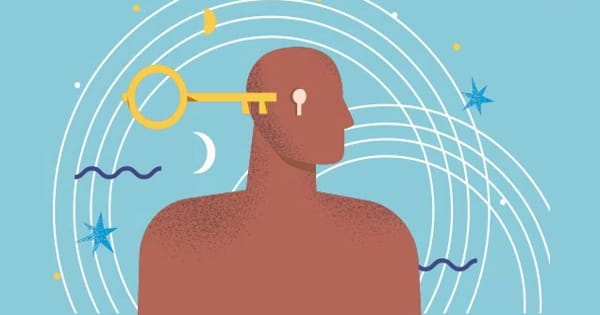Our life partners are simple to take for granted. It’s inevitable in some ways. We muddle about from day to day thinking we already know what they’ll say and do before they ever say it.
However, the reality is that taking your partner for granted is a risky move since it has an impact on how you interact with your spouse. Additionally, studies have shown that your marriage’s quality has a significant impact on your general physical health as well as your level of pleasure and satisfaction in life.
A study conducted in 2001 by Gottman, Levensen, and Woodin revealed that disdainful, disgusted, and other unfavorable facial expressions seen in a marriage are a predictor of both the couple’s future propensity to separate as well as future issues with each spouse’s physical health.
21 years later, a new study by Wells and Haase, et al., (2022), provides the exact opposite of that conclusion. A favorable phenomena the authors refer to as “positivity resonance” accurately predicts not only a happy, fulfilling marriage but also the future physical well-being of each partner.
What Is Positivity Resonance?
The authors define positivity resonance as “moments of interpersonal connection characterized by shared positive affect, caring nonverbal synchrony, and biological synchrony.”
Therefore, positivity resonance is an instance in which you and another person experience a positive emotion without speaking, synchronizing your heartbeats and other bodily functions. Here are three illustrations:
- Brittany is at the cocktail party, standing among a small group of guests who are debating a novel rug fabric. While she is looking around the room for her husband, she suddenly notices him across the space and can also see the boredom in his eyes. They each smile inwardly when they notice it in the other.
- Will and James follow the realtor from room to room as she tries to sell them the house. As she points out each aspect, they nod and murmur neutral acknowledgments, making sure to keep their feelings out of the process. But as the realtor exits the last room ahead of them, their shoulders brush as they head toward the door. Sneaking a quiet glance, they each register the glee in the other’s eyes and they realize together at the exact same moment that this is their future home.
- Arriving home from work, Brooke finds her husband, Jeff, on the couch with their twin toddlers climbing all over him, and he looks tired. Tossing her briefcase on the floor, she yells, “Dogpile!” and throws herself on the floor, still in her silk dress. Right away, both kids jump off of their father and onto Brooke, who begins tickling them. She notices Jeff’s comfort and gratitude in their mutual laughter as she looks up at him. They feel closer than ever at that point.
It could be difficult to accept that these instances of positive resonance can genuinely synchronize your heartbeats with one another, support the maintenance of your physical health, and promote longevity. But it has been demonstrated that all of those things may be predicted by living your life in a relationship devoid of contempt and rich in positivity resonance.
The Secret to Having More Positivity Resonance in Your Relationship
Pay attention to your partner. What do they like, dislike, want, and need? Do your best to stay tuned in to your partner’s needs and wishes.
Be mindful of your own and your partner’s emotions. A couple needs to be emotionally attuned to one another in order to be emotionally linked in a healthy way. If you grew up in a home that didn’t deal with emotions or talk about them a lot, this can be especially challenging for you (emotional neglect).
If you experienced emotional neglect as a child, you may need to put in more effort to grasp how emotions function and how to recognize them in others as well as in yourself. These emotional intelligence skills are quite lernable and can help your marriage resonate more positively.
Don’t forget to thank your companion. Usually, a happy partner is one who feels valued. Couples can weather tough circumstances and maintain their link by knowing and feeling their partner’s appreciation for them. It creates the conditions for positive resonance and is the exact opposite of taking your partner for granted.
Don’t settle for distance or unhappiness. In my experience as a couples therapist, this is among the largest mistakes that couples may make and one of the most typical.
In a relationship, unhappiness can develop over time without either partner fully realizing it. A growing or persistent issue or problem must be identified and addressed, otherwise it may result in increased hostility and decreased positive resonance.
The Takeaway
Your relationship with your lover is held together by your feelings. Additionally, emotions fuel the flame that keeps the romance alive in the union. Unfortunately, if sentiments are not handled with the appropriate understanding and care, they can cause a couple a lot of grief and suffering.
You or your partner may be prone to disengaging during trying or painful disagreements if you or your partner experienced emotional neglect as children. You might need to put in more effort to get resonance as a result.
Many people who experienced emotional neglect as children can greatly benefit from learning to recognize emotions in themselves and their partners, accepting that those emotions cannot be judged as right or wrong but that it is what you do with them that matters, and being able to concentrate on the feelings in a conflict instead of the “facts.”
When you show your partner that you deeply and thoroughly know them and receive the same feeling back, you help to create the sensation of “us,” just as Brooke detected Jeff’s fatigue and gave him what he needed and just as Will and James read each other’s feelings in a single glance. It’s like saying, “We’re a team, and I get you.”
















